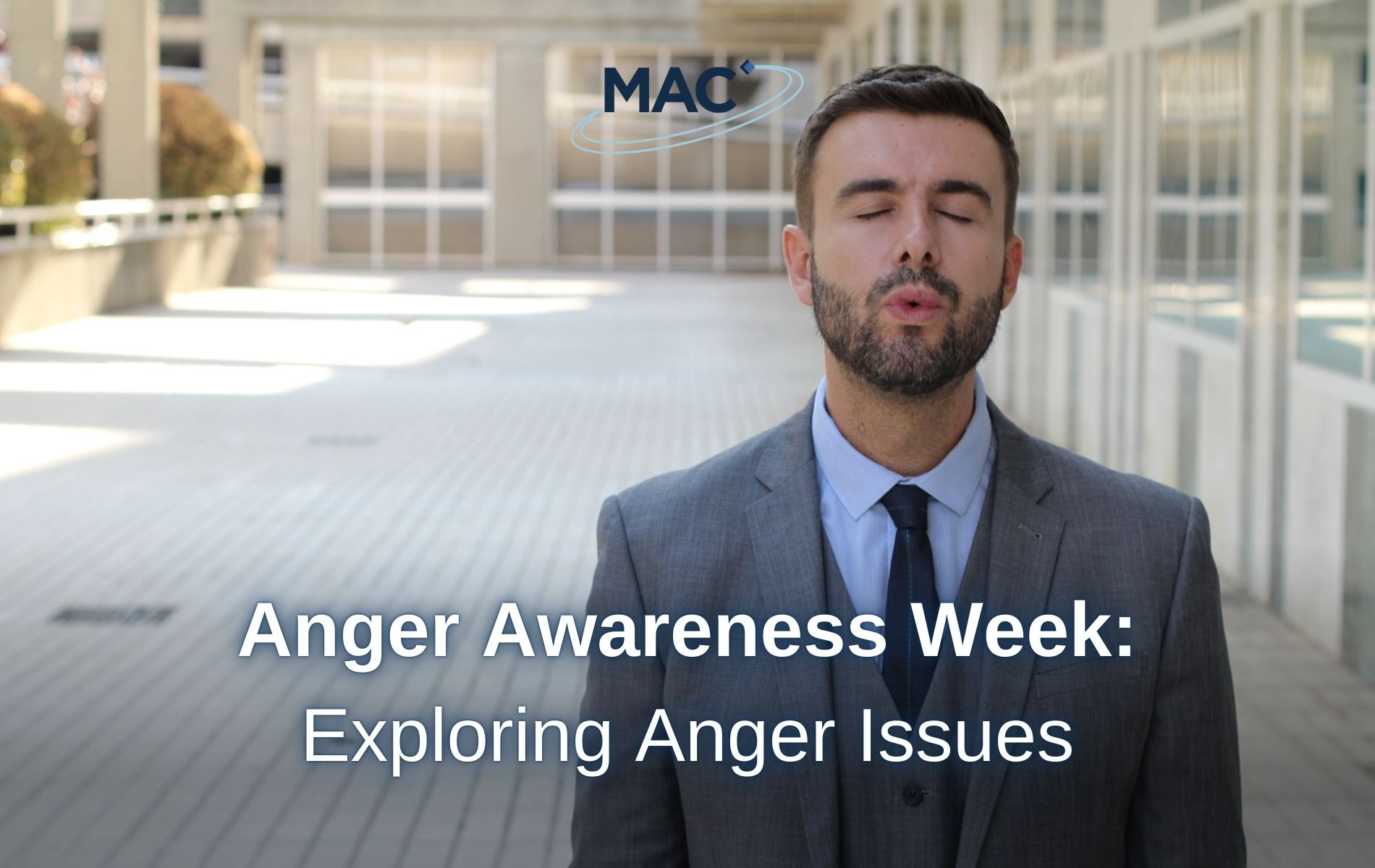For Anger Awareness Week, we’re exploring the relationship between anger, biology, and mental health. More than one in ten people in the UK admit to having difficulty controlling their own anger, and over 28% say they are worried about how angry they feel. Despite this, only 13% or fewer of those struggling with anger have sought help for their anger issues1.
When is anger a problem?
Anger can be a helpful tool that aids us in identifying when something is wrong, protects us from things that are hurting us, motivates us to challenge injustice, and helps protect us in dangerous situations. It is a natural, human emotion. However, it is also a powerful feeling that can be difficult to manage and may make our lives more difficult. Anger can make us lash out and say things we don’t mean, lead to arguments and conflict, and stop us from recognising and processing other emotions. These are all normal consequences of anger, and at some point in our lives, we all struggle with managing our anger, but it can become a problem when:
- You feel like it is controlling you, instead of you controlling it
- You perform unhelpful or destructive behaviours to express your anger
- You use unhealthy coping strategies such as drugs or alcohol to manage your anger
- Your anger has a negative impact on your life, and your mental and physical health
- Your anger upsets, harms, or disturbs the people around you
- You find it difficult to stop thinking about your anger
- You regularly say and do things you regret2.
What causes anger issues?
There are many reasons why we might feel angry, and often the cause leads back to fear, stress, and frustration in response to a situation. The way we interpret and respond to situations around us is determined by many different factors, some of them physical. Things like sleep, food, and exercise can all have a significant effect on our mood, and if our rhythms are disturbed or if we’re not getting enough of each of those things, it can contribute to our anger levels or our reactivity3.
Hormones are chemicals that circulate through the blood and carry messages to different parts of the body4. They can have a dramatic effect on our emotions and may cause us to feel stronger levels of anger, cyclical anger, or anger that you struggle to control or understand. If you are a person who experiences (or has experienced) menstruation, you may notice that at certain times in your cycle you are more irritable and quicker to anger. This may also be true before, during, or after the menopause, or if you are taking hormonal contraception3.
Other factors like ongoing or chronic pain can also lead to anger problems, particularly if we feel unsupported or feel that we have experienced injustice. Stress can also be a contributary factor, as if you’re going through a lot in your life, such as bereavement, relationship issues, or a stressful job, it may be challenging to manage other stressors, leading to an anger response. While you may not react directly to your main source of stress, you may find yourself getting angry at unrelated things to channel that stress3.
Anger and mental health
Anger and mental health are closely related, as long-term anger issues have been linked to depression, anxiety, and self-harm1. Many mental health conditions also include diagnostic symptoms of irritability and anger, and can make us experience higher levels of anger, or struggle to manage difficult emotions.
Over 60% of people living with depression experience mood instability5, and overt displays of anger or irritability are associated with more severe depression6. The irritability may be chronic or episodic7, but overall, it is linked to a lower quality of life5.
Anger or irritability is not typically a symptom associated with anxiety, however, there is some evidence to indicate that people living with an anxiety disorder can experience an increase in the rate and intensity of anger they feel8.
Living with treatment-resistant depression?
One third of people treated for depression find that their treatment does not work. MAC Clinical Research is currently seeking patients that have a diagnosis of treatment-resistant depression and would like to take part in a new study to evaluate the safety and efficacy of an investigational drug. If you have tried at least 1 and no more than 3 depression medications that have not fully worked, you may be able to take part. Find out more on our TRD study page.
References
1 Mental Health Foundation – Boiling Point: Anger and what we can do about it
2 Mind – When is anger a problem?
3 Mind – What causes anger issues?
4 Pituitary Foundation – What are Hormones?
6 NPR – Depression Symptoms Can Include Anger, And That’s Often Misunderstood: Shots – Health News
7 PMC – How and why are irritability and depression linked?
8 PubMed – Anger problems across the anxiety disorders: findings from a population-based study




